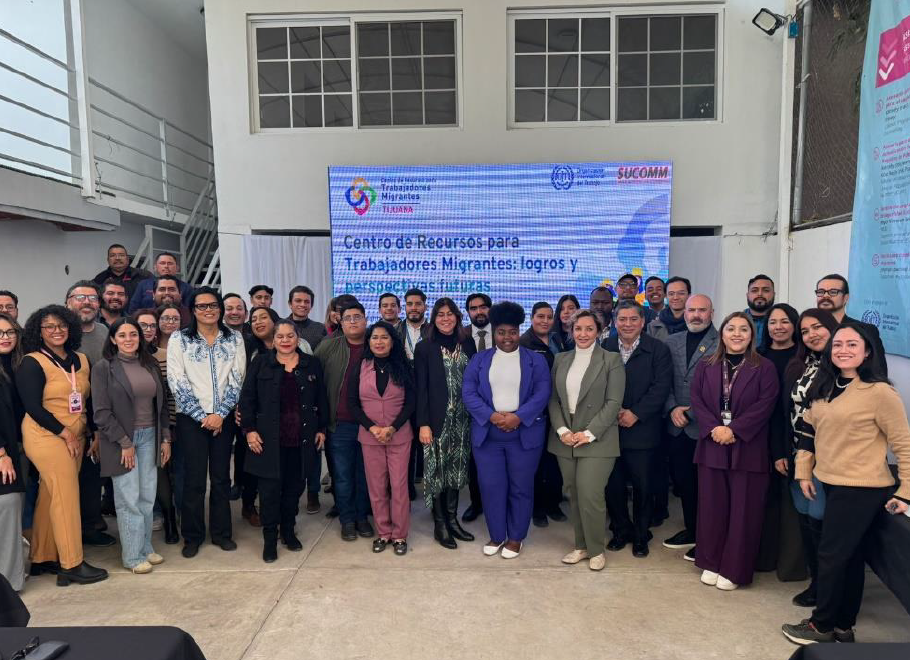Migrant Worker Resource Centres promote best practices for fair recruitment of migrants. More than two years of work and great results
Posted at December 21st 2024 12:00 AM | Updated as of December 21st 2024 12:00 AM
Region/Country : Peru, Mexico, Cuba
|Themes : Fair recruitment, Internal migration
From the Office of the International Labor Organization for Mexico and Cuba, we congratulate the great work of the Migrant Worker Resource Centres (MRCs) in Tijuana, Baja California, and Cancun, Quintana Roo.
The MRCs are based on an ILO model for the governance of labor migration, which has been operating for several years in Asia and Africa. In Latin America, the two centres in Mexico, managed by Sindicatos Unidos con México Moderno SUCOMM, are the pioneers in the country and the region.
The two centres were created to meet the growing demand of migrant workers and their families, adopting a local perspective considering the diverse migration experiences in Mexico. These services are focused on assisting people on the move: potential migrants, refugees, returned migrants, applicants for refugee status, temporary workers, and workers in an irregular situation to receive assistance to access the formal labor market and protect themselves against exploitative and abusive labor practices.
The MRCs have promoted counseling on labor and human rights, labor procedures and formal employment opportunities, migration regularization procedures, and access to identification documents. They have also accompanied cases of access to justice through labor conciliation processes. They have also made strategic alliances to refer migrants to other health and education services and established joint actions with business chambers, micro-enterprises, and unions to facilitate the integration of migrants into the formal labor market.
During the years of operation of the MRC-Tijuana (March 2022 to November 2024) and MRC-Cancun (June 2023 to November 2024), the MRCs have made significant strides. They have provided personalized and integral attention to 3,502 migrant workers (1,990 men and 1,512 women), mainly from Latin America and the Caribbean. These individuals and their families have benefited from a wide range of services, including counseling for access to decent employment, management for labor justice and remediation, migratory regularizations, and access to social security and other services, totalling 10,056 different types of attention.
Looking ahead to 2025, we are optimistic about the future of the MRCs. We expect the centres to increase their capacity to provide services, strengthen and expand their relationship with the employer sector, and actively coordinate with government institutions. Most importantly, we anticipate that the trade union sector will continue to promote the inclusion of the migrant worker population in their host societies. From the ILO, we will continue to work hand in hand with the centres, with the full certainty that they are a successful mechanism for promoting decent work and social justice.

